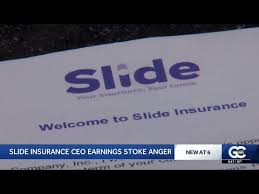During Wednesday’s Board of Governors meetings, a committee for Citizens Property Insurance Corporation approved moving forward with the full allowable 15% average rate increase for personal lines in 2026 — the highest increase permitted under Citizens’ statutory rate glidepath.

However, two committee members opposed the recommendation, breaking a recent pattern of support for raising rates to encourage policyholders to shift toward private insurers. The ensuing discussion centered on whether Citizens has reached a turning point in how its rates are regulated.
“We can no longer justify increasing insurance premiums,” said board member Robert Spottswood, a real estate developer from the Florida Keys. “Many property owners are dropping coverage because of cost. Commercial properties are struggling to afford insurance. Affordable housing projects are at risk due to high insurance expenses. We need to find a way to reduce rates.”
Board member Charlie Lydecker also voted against the increase. Earlier in the day, Lydecker questioned the rationale behind aligning Citizens’ rates with a voluntary market that recently saw significant profits for some insurers and extraordinary executive compensation packages.
“When I see an executive at one carrier earning $50 million, it signals to me that, after years of crisis mode, we might be mismanaging things,” said Lydecker, CEO of Foundation Risk Partners, an insurance brokerage and consulting firm.
Lydecker appeared to be referencing recent reports revealing that Tampa-based Slide Insurance Company, which debuted on Nasdaq last week, paid its founder and CEO Bruce Lucas over $21 million last year in salary, bonuses, and stock awards. Lucas’ wife, Slide’s chief operating officer, earned another $16.5 million.
By law, Citizens is unique among state-established wind pools and insurers of last resort. It must set rates that are actuarially sound but also non-competitive—meaning rates should be higher than those offered by the voluntary market. However, this has been difficult due to the statutory glidepath capping annual increases. Additionally, earlier this year, Florida’s Office of Insurance Regulation rejected the maximum proposed increase and approved less than 9%.
As a result, officials report that Citizens’ rates remain up to 30% below private carrier rates in some areas.
Lydecker suggested it may be time to reconsider the current rate model, especially given the recent carrier insolvencies and the state’s recovery from its insurance crisis.
“If executives are pulling $50 million, something is off,” Lydecker said. “Why should a taxpayer-backed entity participate in that?”
Either the definition of “actuarially sound” is flawed, or Citizens is attempting an impossible role as a true market of last resort, he added. He proposed initiating dialogue with regulators about the Citizens model and its legislative restrictions.
Citizens CEO Tim Cerio acknowledged Lydecker’s concerns at the meeting.
“One focus of the commissioner and the Office of Insurance Regulation has been on the disparity in rates and what ‘non-competitive’ should really mean,” Cerio explained. “Are rates higher than necessary because of market conditions?”
Board member Jamie Shelton suggested engaging lawmakers and regulators to explore new options for Citizens’ future. Spottswood agreed with this approach.
Other key takeaways from Wednesday’s board and committee sessions include:
-
Citizens continues to shrink its policy count, facilitated by numerous takeouts and new competitors in Florida’s insurance market. Since early 2024, regulators have approved approximately 2.2 million takeout offers, with over 1 million notifications sent to policyholders. About 678,000 policyholders have accepted these offers.
-
The insurer’s policy base has dropped from a peak of 1.2 million policies a year ago to roughly 777,500 today — a 36% decline. Its total exposure has decreased by $225 million. Citizens’ market share has shrunk from 15% to 9% in under 18 months.
-
To further reduce exposure and market presence, Citizens rolled out an enhanced clearinghouse platform in April, making it easier for agents and consumers to connect with alternative insurers. Carl Rockman, VP of agency and market services, noted ongoing improvements, including added wholesaler information.
-
Lydecker warned that the enhanced clearinghouse might increase agents’ workload. He urged Rockman to ensure thorough communication and provide additional training and education for agents.
-
The Citizens website now features a “find-a-carrier” tool to help consumers shop for coverage. Additionally, a new point-of-sale form detailing participating clearinghouse carriers and agent appointments will be implemented starting September 1, according to Rockman.
The full board and committee meetings are available for viewing on The Florida Channel.


The controversy around executive pay definitely raises questions about Florida Citizens’ rate decisions. Transparency is key here.
I hope this situation prompts a closer look at how rates are set and whether they truly benefit policyholders.
The executive pay controversy definitely raises questions about how rates are being set. Transparency is key for trust.
I’m concerned that high executive salaries might be driving up insurance rates unfairly. Florida Citizens should explain clearly.
It’s frustrating to see rate hikes when executive pay is under scrutiny. Regulators need to step in and investigate.
The executive pay issue really makes you wonder if policyholders’ interests are being properly protected in Florida
This controversy highlights the need for more transparency in how insurance rates are set for Florida citizens.
Slide Insurance should focus more on fair rates rather than executive compensation during these tough times.